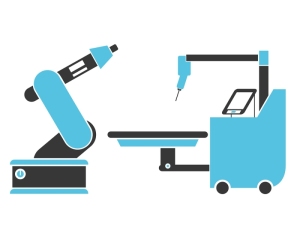by
Lauren Dubinsky, Senior Reporter | November 04, 2016

It's almost impossible to
completely disinfect them
Surgical robots help surgeons perform many complex procedures with greater precision, but they may be putting patients at risk of infection. Those were the findings of a new study published in the journal,
Infection Control & Hospital Epidemiology.
A team of researchers led by Yuhei Saito of the University of Tokyo Hospital, examined 132 robotic and ordinary surgical instruments over the course of 21 months.
The tools were cleaned using in-house cleaning methods recommended by the manufacturer, which involved manual procedures with ultrasonication. The team then measured the protein concentration on the tools after three subsequent cleanings.



Ad Statistics
Times Displayed: 66192
Times Visited: 2165 Ampronix, a Top Master Distributor for Sony Medical, provides Sales, Service & Exchanges for Sony Surgical Displays, Printers, & More. Rely on Us for Expert Support Tailored to Your Needs. Email info@ampronix.com or Call 949-273-8000 for Premier Pricing.
They found that the robotic tools had a higher protein concentration and lower cleaning efficacy than the ordinary instruments. The cleanings were 97.6 percent effective for the robotic tools and 99.1 percent for the ordinary ones.
“These instruments are wonderful tools that allow surgeons to operate with care; but completely decontaminating them has been a challenge for hospitals,” Saito said in a statement.
Surgical robotic technology is becoming increasingly popular. The global surgical robot systems market was worth $3.3 billion in 2014 and is expected to reach $6.4 billion by 2020, according to an Allied Market Research Report.
The industry will have to establish new standards for cleaning surgical instruments, like multi-part robotic tools, in order to protect patients from infections, said Saito.

